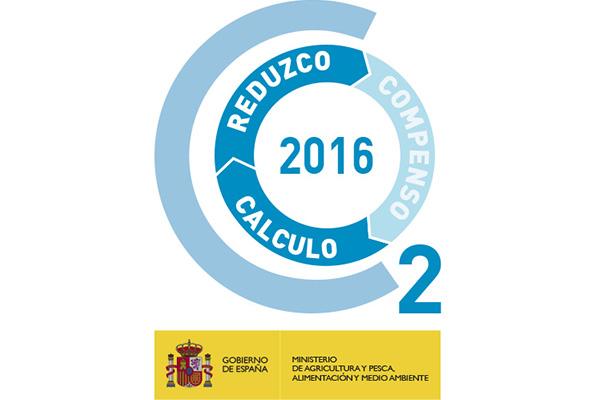FCC Environment obtains the Reduzco seal from the OEEC (Spanish Office for Climate Change)

In keeping with its commitments to reduce greenhouse gas emissions, FCC Medio Ambiente (the Spanish brand for FCC Environment) has been awarded with the Reduzco (Reduce) Seal by the Spanish Office for Climate Change (Oficina Española de Cambio Climático OECC), as part of the registration process for carbon footprint, compensation and CO2 absorption projects set up by the Spanish Ministry of Agriculture, Fisheries, Food and Environment (MAPAMA). This recognition is added to the preceding Calculo (Calculate) distinction, which has been endorsing FCC Medio Ambiente’s registration process since 2013.
FCC Medio Ambiente joins 32 Spanish entities which have been awarded both seals Calculo and Reduzco. Until today, a total of 570 public and private sector organisations have registered their Carbon Footprint.
In 2011, FCC Medio Ambiente began to calculate its Green House Gas (GHG) emissions and since then has employed the tool that has enabled it to identify the significant impact of each one of its different productive processes with the purpose of developing a diffuse GHG emission reduction plan in favour of the fight against the Climate Change.
The reduction of 9.6% for targets 1 and 2 achieved in the 2013-2016 period, according to the calculation protocol established by the OECC, translates the result of the measures undertaken voluntarily to reduce, in an initial period, the diffuse GHG emission from municipal solid waste landfills.
The challenge faced by FCC Medio Ambiente towards 2020 focuses on the reduction of emissions from energy consumption. As the carbon footprint calculation for 2016 indicates, the GHG emissions associated with the company’s fuel consumption represent 61% of Objective 1, owing principally to the overriding consumption of fossil fuel energy from the operational vehicle fleet, whose development is closely linked to the business of FCC Group´s Environment division.
Today, the GHG emission reduction associated with the company’s vehicle fleet requires an analysis system that identifies potential action points where opportunities for improvement may exist. For this reason, FCC Medio Ambiente regards as a priority the implementation of an energy efficiency policy which is the basis for the reduction of these GHG emissions, and whose effectiveness will have to be ensured by meeting the energy objectives approved within the ISO 50001(Royal Decree 56/2016) framework.
In its next reduction plan, whose target year is 2020, FCC Medio Ambiente will have to act upon the reduction of diffuse emissions by prioritising actions which focus on:
- The improvement of energy efficiency in automotive and other activities that consume fossil fuel.
- The introduction of good practises that recover biodegradable materials which are currently disposed of at the landfill. This will allow these GHG emissions to be reduced over time and in a gradual manner.
- The active degassing of cells which are currently in passive degassing in landfills, when they reach suitable conditions for that purpose.
The target set by FCC Medio Ambiente to achieve a 2% reduction of Objective 1 in 2020 should benefit from the repercussions on the fight for the Climate originated by new and future dispositions related to the entry into force of the new Public Procurement Law and by the measures and action plan required for the adoption of the Spanish Circular Economy Strategy. A regulatory framework that will support the dedication by the Medio Ambiente division in its volunteer activities to its commitments to Sustainable Development Goals (SDG) 13 and 12 of the 2030 Agenda in the area of responsible production and consumption and actions against Climate Change.








